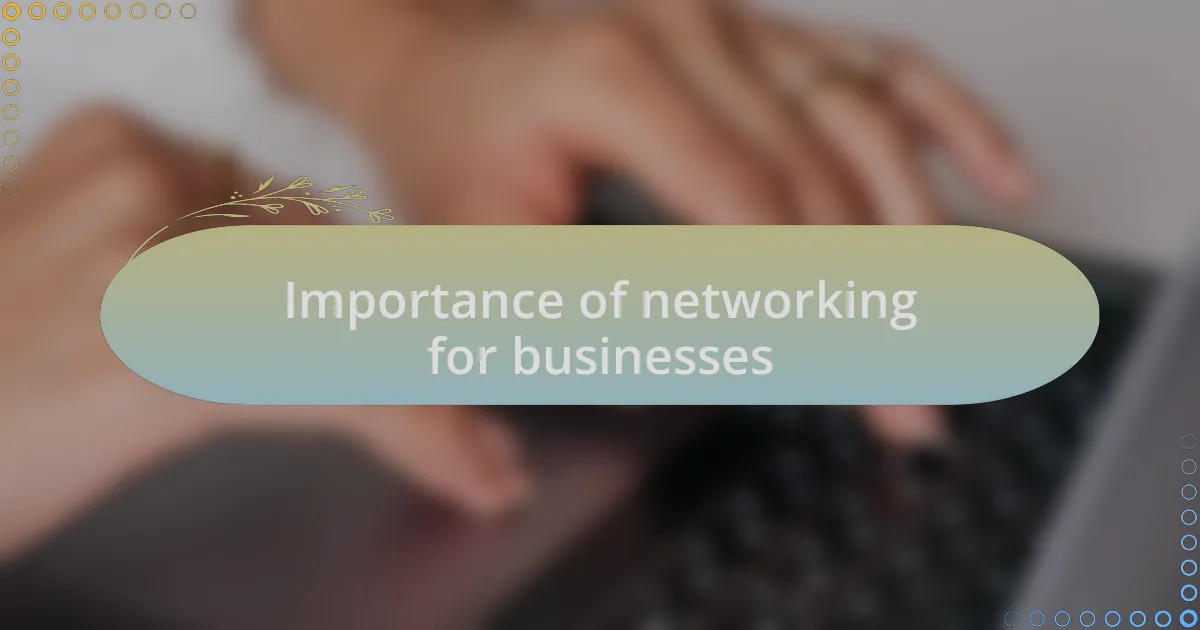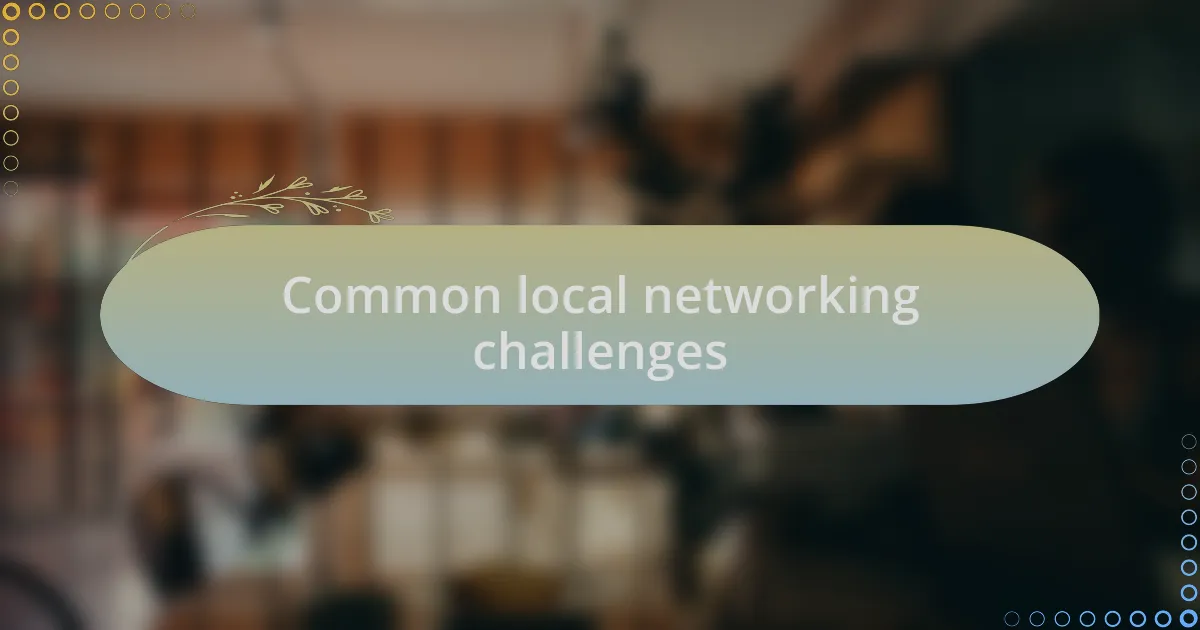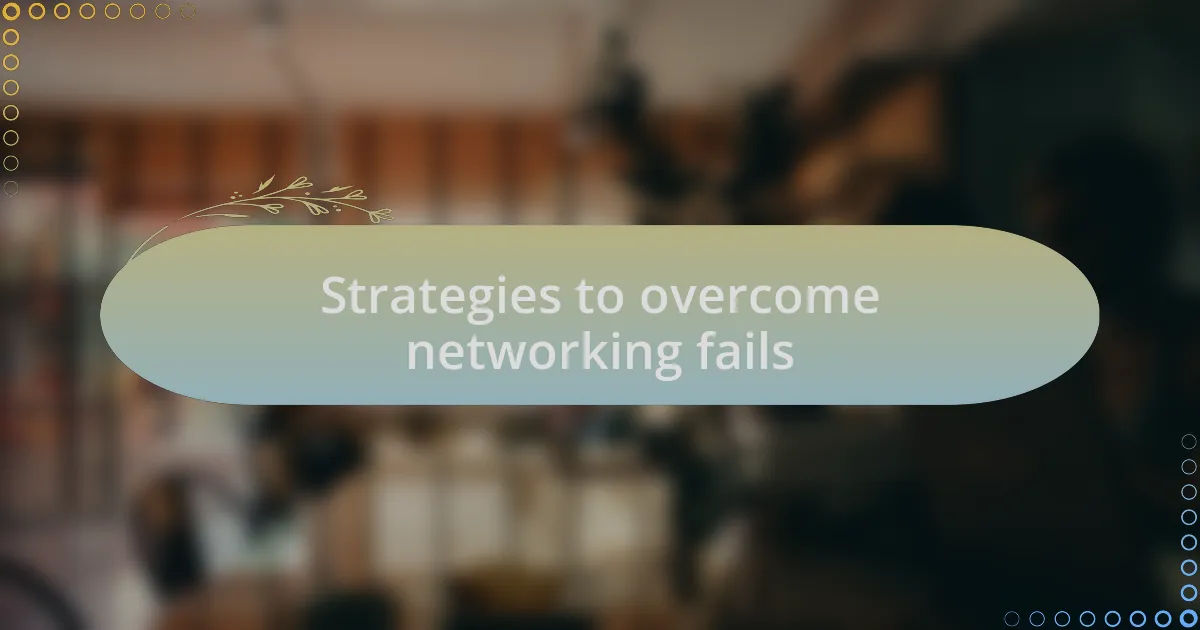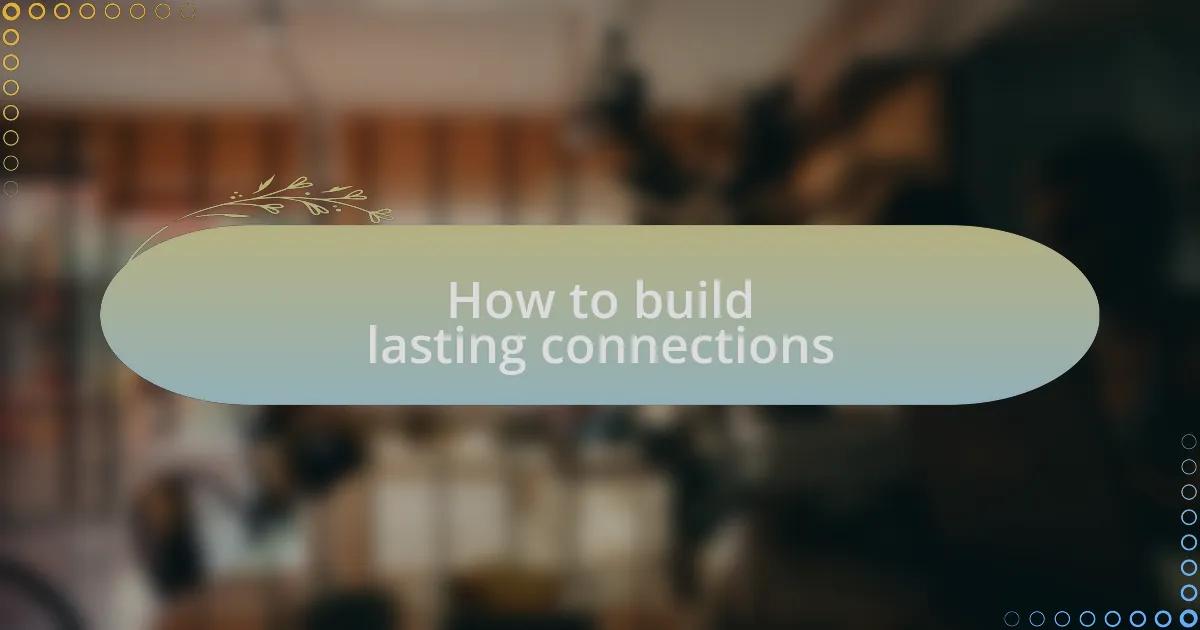Key takeaways:
- Local business networking is about building relationships and community support, which can lead to unexpected opportunities for growth.
- Engaging authentically and consistently with contacts fosters deeper connections and opens doors to collaboration.
- Preparation and follow-up are crucial for successful networking; researching events and connecting promptly can convert brief meetings into lasting relationships.

Introduction to local business networking
Networking at a local level has been a turning point in my own journey as a small business owner. I remember attending my first local networking event; I felt a mix of excitement and nervousness. The energy in the room was palpable, and it struck me just how vital these connections could be for my business growth.
What I’ve learned is that local business networking is about more than just exchanging business cards. It’s about forming relationships and building a community that supports one another. Have you ever considered the power of a friendly face saying, “I know just the person who can help you with that”? It can be a game changer.
As I’ve navigated this space, I’ve come to understand that each connection holds potential, whether it’s a mentor, a client, or a partner. Every interaction teaches something new, and sometimes, those lessons come from unexpected places. Have you reflected on how a single conversation could set the course of your business? That’s the magic of local networking.

Importance of networking for businesses
Building relationships through networking is essential for any business. I clearly remember how my most fruitful partnership emerged from a casual conversation at a local café. It was surprising to see how a simple chat can lead to collaboration that sparks creativity and growth. Have you ever thought about who might hold the key to your next big opportunity?
Networking isn’t just about what you can gain; it’s equally about giving back to your community. I’ve often found that by supporting others, I create a robust network of allies who can step in when I need help. It made me realize that a strong professional network is like a safety net, ready to catch you when challenges arise. Isn’t it remarkable how reciprocity can turn strangers into trusted connections?
Moreover, local networking offers a platform for learning and sharing experiences. From attending workshops to small group discussions, I’ve had the chance to learn invaluable insights that have shaped my business strategies. Each story shared provides a fresh perspective or a new approach to problem-solving. Have you ever considered how much richer your knowledge could be with each interaction? By embracing these opportunities, you open doors to innovation and growth you might not have found on your own.

Common local networking challenges
It’s easy to underestimate the challenge of finding the right networking events in your local area. I remember attending a few gatherings that didn’t align with my interests or business goals, feeling out of place instead of inspired. Have you ever walked into a room and thought, “This isn’t the right crowd for me”? When events miss the mark, it can feel like time wasted instead of an opportunity seized.
Another common hurdle is overcoming the initial awkwardness of starting conversations. I used to struggle with breaking the ice, feeling a twinge of anxiety before approaching someone new. It’s almost like staring at a blank canvas; the potential is there, but where to start? I found that remembering we’re all there to connect helps ease that tension and shifts the focus from myself to the shared experience of networking.
Finally, the follow-up can be a daunting task. After a great conversation, I often faced uncertainty about how to continue the relationship. Would they remember me? I learned that sending a simple thank-you email or connecting on social media can go a long way in solidifying that initial connection, turning brief encounters into meaningful relationships. How do you nurture those connections after the initial meeting?

Strategies to overcome networking fails
One effective strategy to overcome networking fails is to thoroughly research the events you plan to attend. I learned this the hard way; after attending a few mismatched gatherings, I decided to dig deeper. By checking event details, understanding the attendees, and aligning them with my professional goals, I found gatherings that truly resonated with my interests. Isn’t it amazing how a little prep work can turn what seems like a random event into a valuable opportunity?
To tackle those awkward moments when starting conversations, I started preparing a few open-ended questions in advance. I recall a time when I approached someone with genuine curiosity about their business. The conversation flowed seamlessly, and both of us walked away with insights. Isn’t it reassuring to know that having a handful of engaging questions at the ready can ease the anxiety of striking up a conversation?
Lastly, I found that creating a follow-up plan significantly improves relationship-building. Rather than waiting days to connect, I made it a point to send a message within 24 hours of meeting someone. This practice helped transform fleeting introductions into lasting connections. Have you ever noticed how promptly following up can remind someone of the meaningful exchange you had? It’s incredible what a thoughtful follow-up can do to solidify relationships.

How to build lasting connections
Building lasting connections often comes down to authenticity and shared experiences. I remember attending a local business expo where, instead of just exchanging business cards, I took a moment to truly listen to someone’s story. There was a spark in our conversation; I could sense the enthusiasm they had for their work. Engaging authentically fosters a stronger connection that a simple “nice to meet you” never could. Have you noticed how some conversations just linger in your mind long after they end?
Another crucial aspect of nurturing connections is consistency. I learned this when I started scheduling regular coffee catch-ups with a few contacts instead of waiting to bump into them at events. Those informal meetings led to deeper discussions about our challenges and goals, creating a support network that I never anticipated. It’s fascinating how dedicating just an hour every month can reinforce relationships and open doors to new opportunities. How often do you check in with your network intentionally?
Lastly, embracing vulnerability can be a powerful tool in connection-building. In one instance, I shared a failure I encountered in my business with someone I had just met. To my surprise, they opened up about their own struggles, which allowed us to bond on a deeper level. By being open and real, I found that people are often willing to reciprocate, leading to more meaningful and enduring connections. Isn’t it amazing how our challenges can become the foundation for lasting relationships?